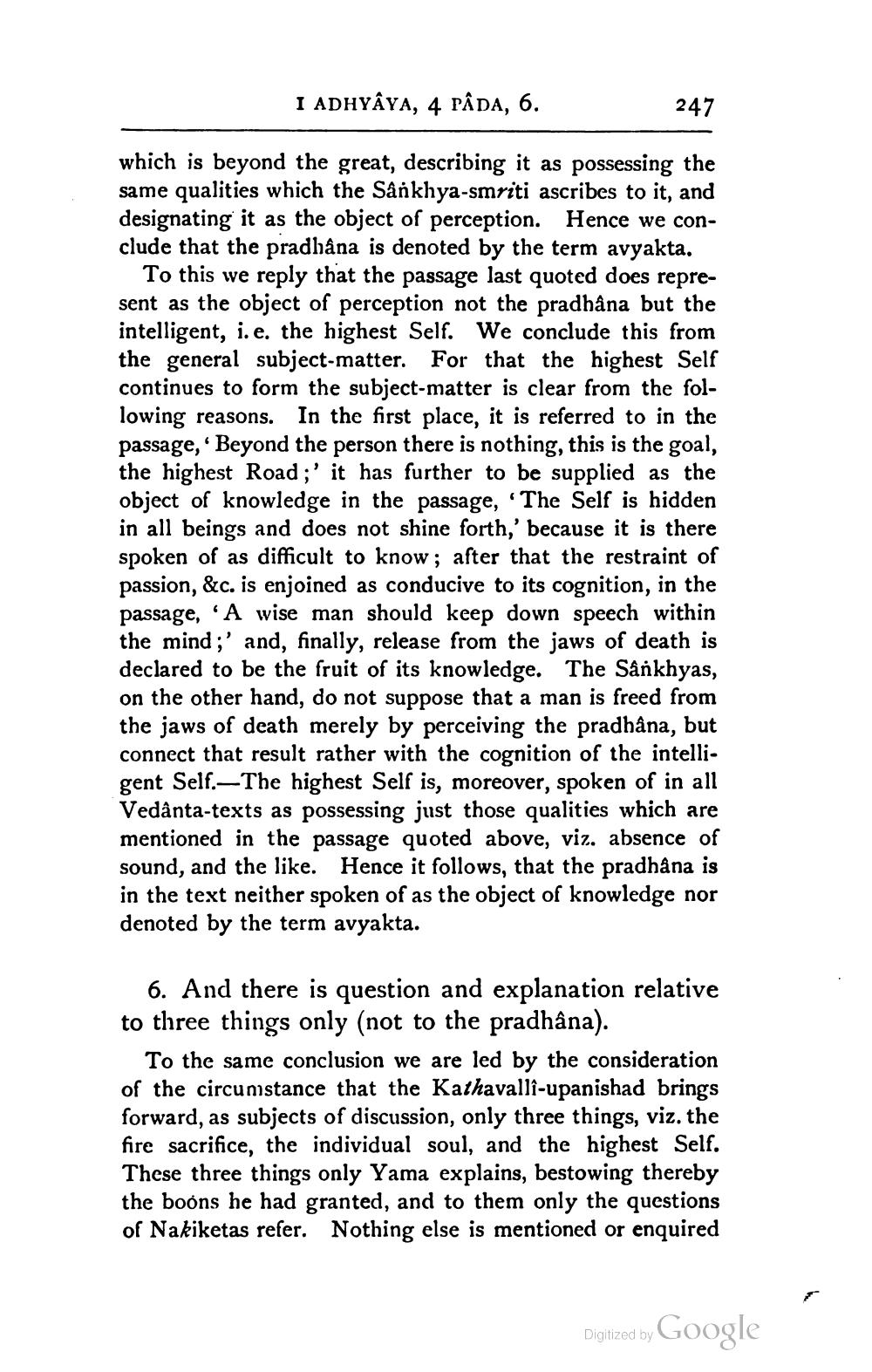________________
I ADHYAYA, 4 PÂDA, 6.
247
which is beyond the great, describing it as possessing the same qualities which the Sankhya-smriti ascribes to it, and designating it as the object of perception. Hence we conclude that the pradhâna is denoted by the term avyakta.
To this we reply that the passage last quoted does represent as the object of perception not the pradhana but the intelligent, i.e. the highest Self. We conclude this from the general subject matter. For that the highest Self continues to form the subject-matter is clear from the following reasons. In the first place, it is referred to in the passage, Beyond the person there is nothing, this is the goal, the highest Road;' it has further to be supplied as the object of knowledge in the passage, 'The Self is hidden in all beings and does not shine forth,' because it is there spoken of as difficult to know; after that the restraint of passion, &c. is enjoined as conducive to its cognition, in the passage, 'A wise man should keep down speech within the mind;' and, finally, release from the jaws of death is declared to be the fruit of its knowledge. The Sankhyas, on the other hand, do not suppose that a man is freed from the jaws of death merely by perceiving the pradhana, but connect that result rather with the cognition of the intelligent Self.—The highest Self is, moreover, spoken of in all Vedânta-texts as possessing just those qualities which are mentioned in the passage quoted above, viz. absence of sound, and the like. Hence it follows, that the pradhana is in the text neither spoken of as the object of knowledge nor denoted by the term avyakta.
6. And there is question and explanation relative to three things only (not to the pradhâna).
To the same conclusion we are led by the consideration of the circunstance that the Kathavallî-upanishad brings forward, as subjects of discussion, only three things, viz. the fire sacrifice, the individual soul, and the highest Self. These three things only Yama explains, bestowing thereby the boons he had granted, and to them only the questions of Nakiketas refer. Nothing else is mentioned or enquired
Digitized by Google
ogle




